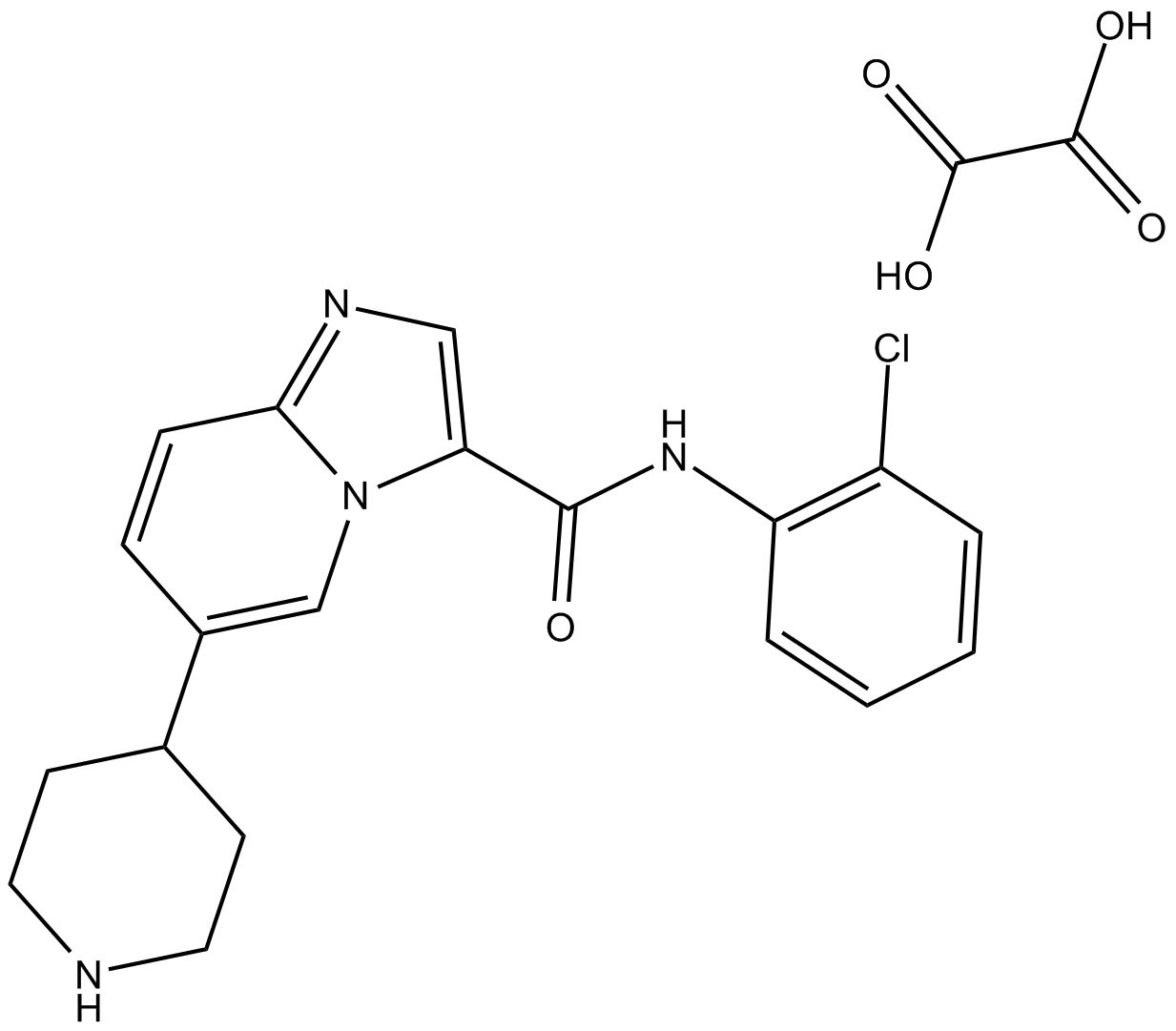LDN-211904 |
| Catalog No.GC16798 |
LDN-211904 (compound 32) is a potent and selective EphB3 inhibitor with an IC50 of 0.079 μM. LDN-211904 shows good metabolic stability in mouse liver microsomes. LDN-211904 with cetuximab could be effective in inhibiting STAT3-activated CSC stemness and cetuximab resistance in CRC.
Products are for research use only. Not for human use. We do not sell to patients.

Cas No.: 1198408-78-4
Sample solution is provided at 25 µL, 10mM.
IC50: 79 nM for EphB3
LDN-211904 is an inhibitor of erythropoietin-producing hepatocellular carcinoma (Eph) receptors.
Erythropoietin-producing hepatocellular carcinoma (Eph) receptors, a group of highly conserved transmembrane proteins composed of multiple domains, participate in various cell signaling pathways. So far, 16 Eph receptors have been identified in vertebrates, which can be divided into two major classes (EphA and EphB) based on sequence similarity. Mammals including humans have 14 Eph receptors (EphA1–EphA8, EphA10, EphB1–EphB4 and EphB6).
In vitro: Previous study found that LDN-211904, a 4-piperidinyl analog, retained significant EphB3 inhibitory activity, and also had greater aqueous solubility due to the presence of a basic amine. LDN-211904 was profiled for functional inhibitory activity against a panel of 288 kinases and the results showed that LDN-211904 was quite selective for tyrosine kinases. The only noted exceptions were the three serine/threonine kinases p38a, p38b, and Qik. In addition, only LDN-211904 showed moderate selectivity among the tyrosine kinases and little selectivity verses other EphA and EphB subtypes, except for EphA6 and EphA7. Moreover, LDN-211904 demonstrated the best stability with a t1/2 of 348 min and a CLint of 4 μL/min/mg protein [1].
In vivo: Up to now, there is no animal in vivo data reported.
Clinical trial: So far, no clinical study has been conducted.
Reference:
[1] Qiao, L. ,Choi, S.,Case, A., et al. Structure-activity relationship study of EphB3 receptor tyrosine kinase inhibitors. Bioor. Med. Chem. Lett. 19(21), 6122-6126 (2009).
Average Rating: 5 (Based on Reviews and 4 reference(s) in Google Scholar.)
GLPBIO products are for RESEARCH USE ONLY. Please make sure your review or question is research based.
Required fields are marked with *




















